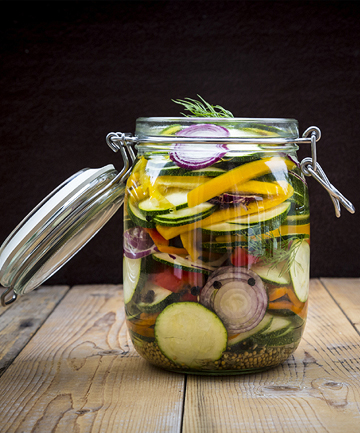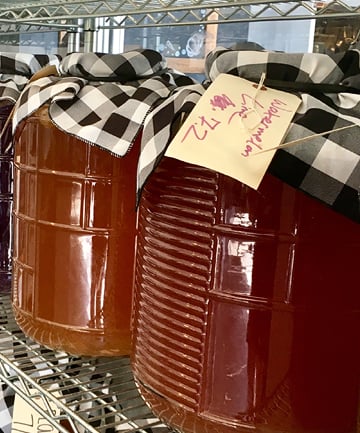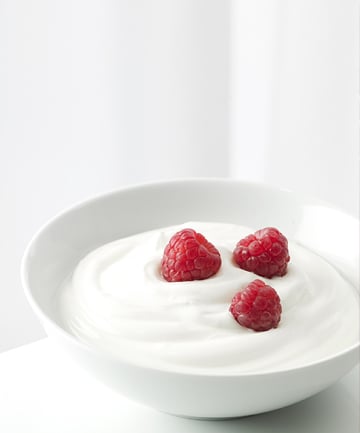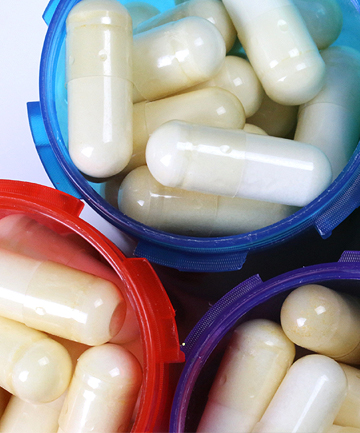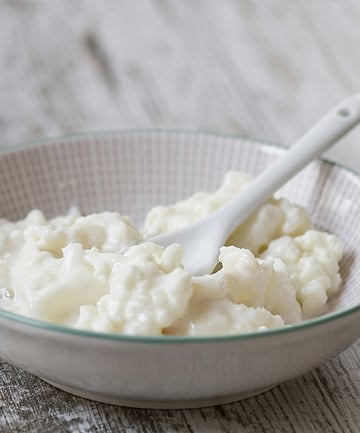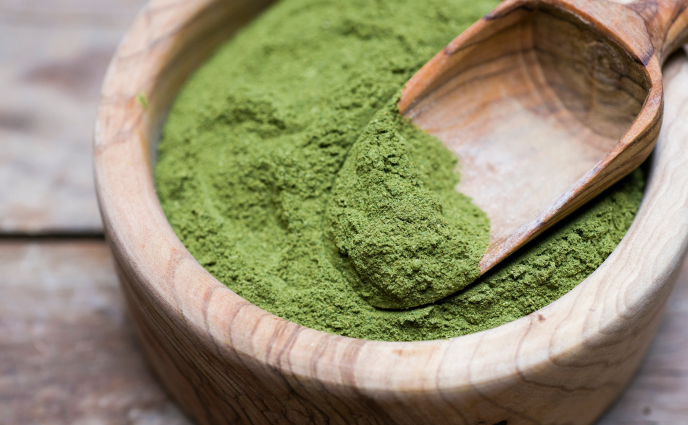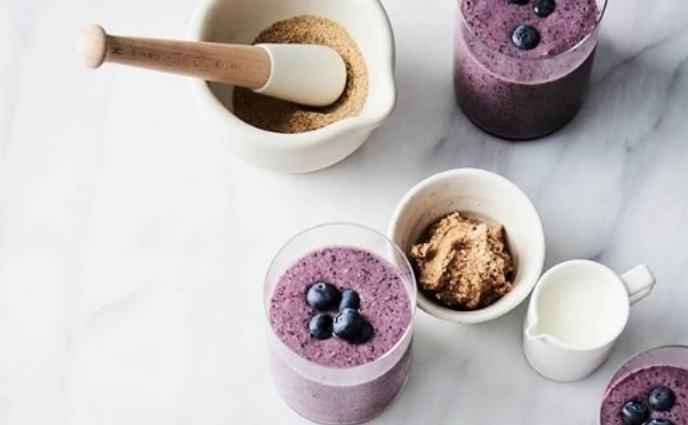"Produce your own in-house probiotics with home pickling," says registered dietitian Monica Auslander Moreno, MS, RD, LD/N, founder of Essence Nutrition. According to her, you'll need a sterile mason jar, some veggies, white vinegar, salt, some sugar, and any spices or herbs for flavor. She also adds that you can even pickle cut lemons and then eat the skin. Yum!
Image via Westend61/Getty
"I often recommend store-bought kombucha because it is rich in probiotics and is widely available," says registered dietitian, Molly Kimball, RD, CSSD. However, she points out that ingredients and sugar content are variable in store-bought brands, making it important to carefully read the ingredient panels. She also advises choosing a non-pasteurized brand like Big Easy Bucha, which is only has eight grams of sugar (or less) per 16-ounce bottle.
Image via photo by Pam Susemiehl/Moment/Getty
"Yogurt is filled with probiotics and contains live cultures," says registered dietitian nutritionist Lee Cotton, RDN. Yogurt can be added to smoothies, morning oatmeal, or can be eaten with fruit, she explains — though, as with kombucha, it's important to read the nutrition label and watch for sugar content.
Image via Will Woods/DigitalVision/Getty
"Probiotic supplements are found in health food stores and supermarkets," explains Cotton. However, she says it is always important to speak to a health care practitioner first before adding supplements of any kind to your diet.
Image via Douglas Sacha/Moment/Getty
"Kefir is great for those who do not like the texture of yogurt," says Cotton. She also says that it has a decent amount of protein (around 10 grams per serving) — so just pair it with a handful of almonds, and you have a perfect snack on your hands.
Image via ondacaracola photography/Moment/Getty


